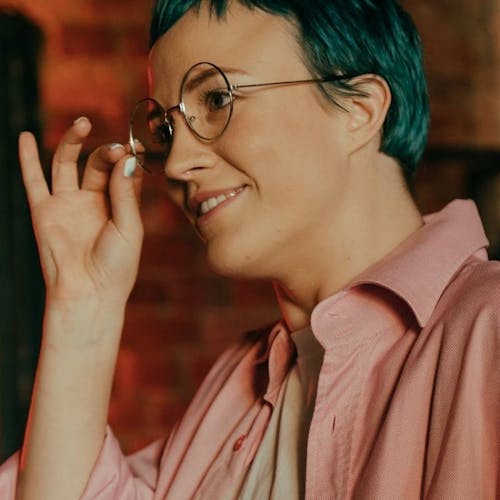This website uses cookies to enhance the user experience. By using Yoppie you are agreeing to our use of cookies.
Your Hormones at Every Age and Stage
Written by Yoppie
20 Apr 2020
Puberty
Periods
Pregnancy
Menopause
Every woman’s life is made up of many periods of change, and the big ones are often fuelled by hormones. They are the building blocks that make up our life, from early teenage years to old age. We’re taking a look at those big moments, and how hormones contribute to each and every one of them.
Puberty
Ah puberty, where it all begins! Hormones are the catalyst for puberty, which changes everything; your body and your brain. As you reach your teenage years, your body begins to release hormones that cause skin changes, unusual hair growth (like on your legs, genitals and armpits), and your body shape to change. Hello hips and boobs! And of course, your period starts, but we’ll get to that next.
Hormones are there to regulate your emotions and bodily functions, and while it’s all totally normal, there are times when it can get distressing. Like when it affects your mental health, for example, and when your body starts doing things you’re not used to.
Try not to worry about these changes too much, and instead think of them as the first of many hormonally-driven milestones in your life. You may not feel great about it while it’s happening, but maturing from a girl into a woman is an exciting time.
Puberty’s a big subject, so we have a whole blog on it right here.
Periods
Love them or hate them (but most likely hate them!), periods can start as young as age 8, or as old as age 17. Everyone is different, but what remains the same is that every girl’s period is a product of hormones. Hormones decide what age your period starts, whether it is light or heavy, and other characteristics.
It all begins when levels of the hormones estrogen, progesterone and testosterone start to fluctuate, triggering the lining of the womb to break down and exit through the vagina, hence the bleeding, which lasts for a few days.
The same hormones can cause mood swings, cramps, skin changes and more. But believe it or not hormones can be used in some types of contraception to have the opposite effect, changing the way your body works to lessen the negative effects.
Pregnancy
Once your period starts, you usually have the ability to get pregnant, but of course this can only happen if your hormones are doing what they’re supposed to do during ovulation. We have a whole blog on ovulation if you want to know more.
Hormones trigger an egg to be released by your ovaries, and if this is fertilised by a man’s sperm, it has the chance of turning into a baby. It’s not always so simple of course, but essentially this is what needs to happen, followed by the right conditions for the fertilised egg to develop. What creates those perfect conditions? You guessed it… hormones!
Preventing unplanned pregnancies also has a lot to do with hormones, as we can control the menstrual cycle to manipulate it into doing what we want. Hormonal birth control usually contains synthetic hormones which are very similar to the naturally occurring hormones in your body. This tricks your body into either stopping the egg releasing, making it more difficult for sperm to make their way around, or making the lining of the womb thinner to prevent the fertilised egg implanting. Either way, the goal is to stop you from conceiving.
Miscarriages
Hormones can sometimes be the cause of negative moments in life too, and are related to a lot of other health conditions. Unfortunately, research shows that hormones could be to blame for recurrent miscarriages if a woman has a hypersensitivity to estrogen and progesterone.
For a pregnancy to begin and be brought to term, a number of endocrinological events must take place - the endocrine system being the collection of glands that produce hormones. Research suggests that a small percentage of women may experience endocrine alterations that have the potential to lead to miscarriage, with an estimated 8-12% of cases of recurrent pregnancy loss (RPL) caused by endocrine issues. And of course after miscarriage, hormone levels can affect the subsequent menstrual cycle.
Always speak to your GP if you have concerns about pregnancy complications or want to know more about how your hormones can affect pregnancy.
Menopause
Hormone depletion later in life is the primary cause of menopause. Many physical changes happen from perimenopause onwards, and all of these begin with fluctuations in hormone levels, particularly variations in the level of estrogen.
At the peak of your reproductive years, the amount of estrogen circulating in your body rises and falls predictably throughout your menstrual cycle. You are actually born with all the eggs you will ever have already in your ovaries, and these decline over time, until you reach menopause and they start to run out. During this time, the ovaries become less responsive to the hormones involved in reproduction, and the body goes through a series of changes. For more on the symptoms of menopause, check out this blog.
Want to know more about how hormones affect your life, or share your experiences? Head on over to our private Facebook group or drop us a note on Insta @itsyoppie. Don't forget that our personalised period subscription box can get organic tampons, PMS supplements, and much more, delivered easily and regularly through your letterbox. Phew! That's that taken care of at least.
Fact checked by Doctor Brooke Vandermolen.
Section jump
Back to top
Subscribe To Our Newsletter
YOPPIE





© 2026 Yoppie is a registered trademark of Phlo Technologies Ltd.
Yoppie's supplements are not a substitute for a varied diet and healthy lifestyle and are not intended to diagnose, treat, or cure any disease. If you are pregnant, breastfeeding, have a medical condition or are under medical supervision, please consult with your doctor before taking any of our products.






